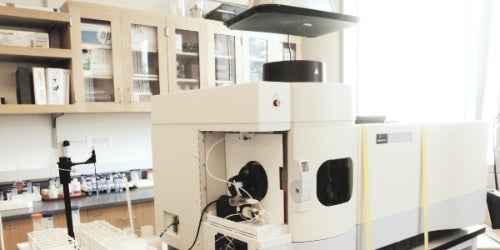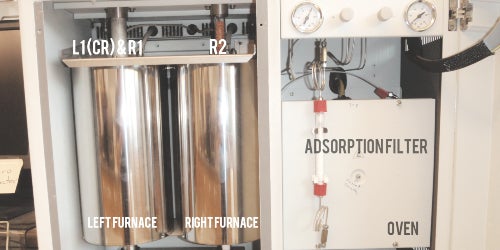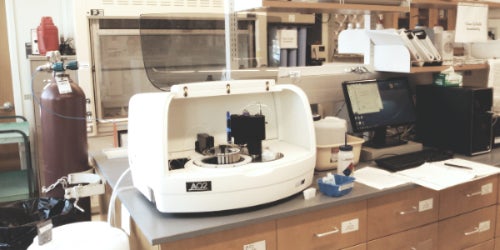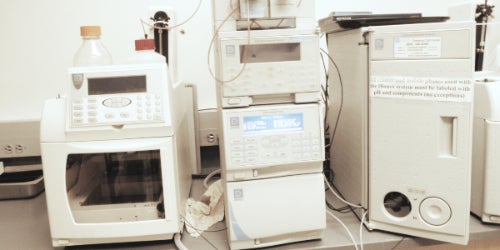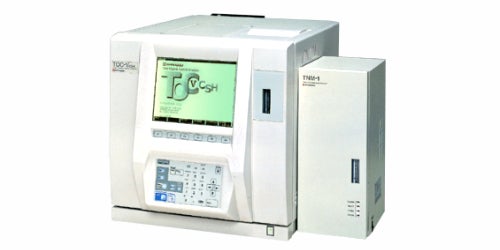The University of California, Riverside has a long history of working with the Earth, studying and improving agricultural techniques, and delving into many various studies of scientific research involving air, soil, plants, and water. The Environmental Sciences Research Laboratory aims to continue this work, expanding the Department’s role in providing opportunities for outside agencies to be able to take advantage of our facilities. Our researchers strive for quality and timeliness in regards to our work, while maintaining high safety standards in accordance with campus policies.
ESRL clients are UC Academics. The lab also accepts samples, on a limited basis, from other educational institution and external clients. External customers must have an Agreement of Service in order for our analyst to accept materials or commence on analysis on any items.
For external customers who do not have an Agreement already in place:
Agreement for Services Request Form
If you are unsure if you have a current Agreement with our lab, please e-mail our Financial Service Analyst stephanie.morales1@ucr.edu for verification. Once confirmed, you can contact David Lyons with information for analysis.
Please e-mail David Lyons at Esrl@ucr.edu with information for analysis.
ESRL protocol for department users
Submitting Samples
Submission of samples for analytical testing depends upon the desired analyte(s) to be tested. Please label all sample containers with the following:
- Investigator Name
- Unique Sample ID Number/Letter or combination
- Analytical Procedure
-
ICP-OES : Metal Detection
Plant and soil samples must undergo a digestion or extraction process in order to yield a liquid sample. This method will likely vary depending upon sample composition, analytes desired, cost, and availability of equipment. Call/email the ESRL for possible guidance with this procedure. Aqueous samples are compatible with the ICP_OES system. Sampled must be filtered to at least 0.45micron filter paper, and preserved with 1% by volume of nitric acid. Samples can be supplied in any clean, leak-proof container, preferably Nalgene or similar bottles. 15ml/sample at the minimum, 50 ml/sample is desired for any possible retesting or recalibration for high levels of analyte.
ICP-OES samples do not require refrigeration.
-
Ion Chromatograph: Anions
Aqueous samples, which require refrigeration/coolant while in transit and storage. Please use leak-proof Nalgene bottle or equivalent. 10ml/sample is sufficient for analysis.
-
Flash EA: Carbon/Nitrogen
Samples must be dried at 50-60C overnight, then thoroughly ground and passed through a 100-mesh or finer sieve, and subsequently kept absolutely dry in a desiccator. For analysis, 30 mg for plant samples, or 100mg for soil samples is needed, so you must make sure that the sample is homogenized and that the amount is representative of the whole sample. Storage with desiccant is strongly advised.
-
AQ2 Discrete Analyzer: NOx, NH3, PO4
Aqueous samples in a volume of 5mls per analyte are required, with 25-50mls being ideal. Use Nalgene or similar leakproof bottles, and keep samples refrigerated during transport and storage.
-
Total Organic Carbon (TOC) and Total Nitrogen (TN)
Aqueous samples, which require refrigeration/coolant while in transit and storage. Ideally collected/stored in 40ml “Ultra-Low TOC” vials with Teflon lined caps. Samples MUST be filtered through inert filters, nylon is preferred. Acidify with 0.6mL HCl to 40mls of sample. 40 ml/sample is sufficient for analysis.
Instruments
Lab Personnel
ESRL - David Lyons
Geology 2460 A
3401 Watkins Dr
Riverside CA 92521
David has a knowledge base acquired from twelve years of analytical research work in the Biogeochemistry Department of the State University of New York’s College of Environmental Science and Forestry. He will be glad to discuss your analytical needs and help you decide on solutions to your particular challenges.

